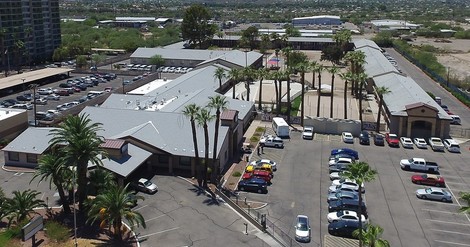Your podcast discovery platform
Curious minds select the most fascinating podcasts from around the world. Discover hand-piqd audio recommendations on your favorite topics.

piqer for: Global finds Deep Dives
Sarah Salvadore is an independent data and investigative journalist.
Salvadore spent the past year collaborating on a multimedia investigation for The New Yorker. She worked as a fellow at Columbia’s Global Migration Project - writing and publishing stories of impact on women and girls, migrating from Central America's Northern Triangle. She is a 2016 alumna of Columbia Journalism School, New York, graduating with an MS in Data Specialization and Gender Migration.
Salvadore was part of Columbia's first cohort specializing in data-driven journalism. She is interested in telling human interest stories, using latest tools in data collection, analysis and visualization.
She previously worked with the Times of India in Hyderabad and Kolkata.
Immigrant Youth Shelters: “If You’re A Predator, It’s A Gold Mine”
Thousands of immigrant teenagers are sheltered across various youth shelters run by the U.S. Health and Human Services department’s Office of Refugee Resettlement. But these shelters are not really safe havens for children. With no legal status and English-speaking skills, these children become easy prey for sexual offenders. In a recent investigation, ProPublica obtained police reports and call logs to assess the conditions of these shelters. The reports document hundreds of allegations of sexual offenses, with incidents dating back to 2014, when the United States saw a surge in unaccompanied minors from Central America. “If you’re a predator, it’s a gold mine,” Lisa Fortuna, director of child and adolescent psychiatry at Boston Medical Center, told reporters Michael Grabell and Topher Sanders. “You have full access and then you have kids that have already had this history of being victimized.”
Victims mentioned in the reports are as young as six years old. It’s unclear if any of children mentioned were separated from their parents at the border. “When a perpetrator is trying to pick a victim they’re picking somebody that they think is less likely to report the abuse,” said Nayeli Chavez-Dueñas, a clinical psychologist who helped develop shelter guidelines on behalf of the National Latina/o Psychological Association. “Children and youth that are coming from outside of the country, that have no legal status here, that don’t speak English, that don’t have access to lawyers or people who can protect them — they already might think they’re not going to be believed.”
Stay up to date – with a newsletter from your channel on Deep Dives.
